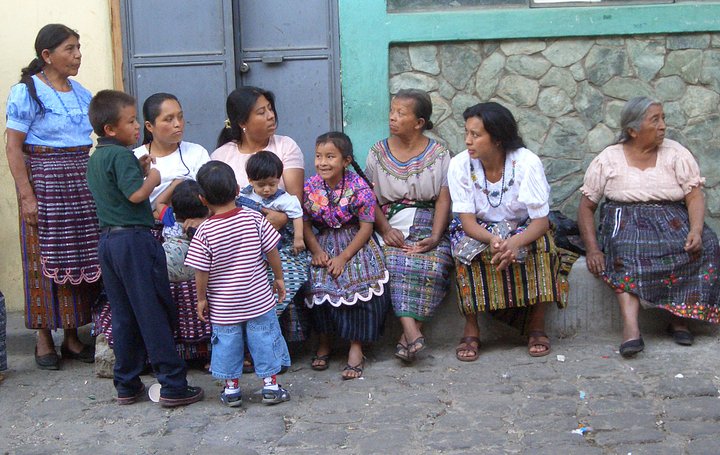Sometime between the ages of 45 and 55, most human women go through menopause. Before menopause, they’re ovulating, with the possibility of becoming pregnant. Afterwards, ovulation stops: no more kids. Which, from an evolutionary perspective, begs the question, why? If they’re not able to procreate, yet they’re mostly living for many more decades, consuming resources that the rest of the tribe (when tribal groups were the norm) could use to their benefit, what’s the point?
Not that evolution has a “point” as such — it’s purely opportunistic, not forward thinking — but since the survival of the species depends on getting from one generation to the next, you might think that someone who was no longer part of this process would automatically drop out of the picture, so to speak. (Speaking as a science writer, you understand, not as a husband of many decades who fully appreciates the many advantages of having a post-menopausal spouse around.)
In living for many years beyond childbearing age, human females differ from all other primates. Chimpanzees, gibbons, great apes and all the rest are fertile right up until they die. (Not so many other vertebrates. For instance, female killer whales stop reproducing at about age 40 but live into their 90s, while female short-finned pilot whales live past 60, some 25 years after having their last offspring.)
Since nature, in the long run, is somewhat efficient (with many exceptions!), researchers have come up with several competing explanations for human menopause , including the leading one: the grandmother hypothesis. Imagine two tribes. In Tribe A, there’s no menopause. Women keep having babies until they die (at which point, their youngest kids probably die too). In Tribe B, menopause sees to it that females live for many years beyond their childbearing age. Although these post-menopausal women consume tribal resources, they’re also able to support other members of the tribe, in particular their daughters and grandchildren. Unburdened by the need to care for their own kids, they can forage and care for others’ young.
Which tribe is more successful in the long run? Given that human females are menopausal, it seems that nature’s experiment with menopause gives the nod to Tribe B. The “maximizing births” approach of Tribe A, i.e. having children right up until death — is, apparently, offset by the women in Tribe B having fewer offspring, but with post-menopausal grandmothers around to help them survive. In the short term, by investing in her kids and their kids at the expense of having more of her own, gran is maximizing her own genetic legacy.

The Grandmother Hypothesis holds that a human female’s decades of post-menopausal infertility is advantageous for her genetic legacy. (San Pedro La Laguna, Guatemala/Barry Evans)
Note we’ve just been discussing mothers and grandmothers — what about fathers and grandfathers who, unlike women, are fertile until they die? That’s easy: giving birth is a cast-iron proof of parentage. A woman knows who her children are. Guys, not so much. If you, as a male, aren’t sure if you’re helping raise your own baby or that of your brother (and what about that good-looking stranger who passed through here last year?), you may not be too inclined to invest time and energy into the little bundle of joy your woman has just presented you with.
That, in a nutshell, is the grandmother hypothesis. And it’s a lovely hypothesis, with — as is the case with such “post hoc” ideas — no way to confirm or refute it. In any case, here’s to grannies the world over. They’re doing their bit, for which — given that we’re here — we should all be grateful.
CLICK TO MANAGE